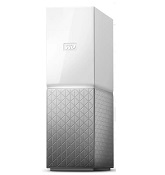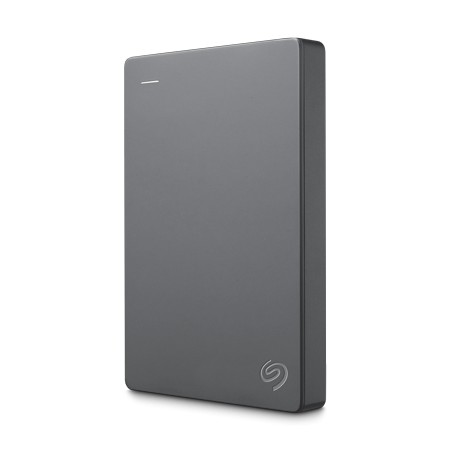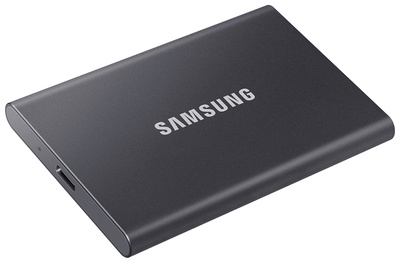Hard Disk for NAS: A Complete Guide to Choosing the Right Model
Introduction
In today’s interconnected world, the demand for centralized data storage has grown exponentially. Whether you’re a home user looking to store family photos and videos, or a business aiming to safeguard critical data, a Network Attached Storage (NAS) system is a versatile solution. However, the backbone of any NAS system is its hard disk drive (HDD). Choosing the right HDD can significantly impact performance, reliability, and the overall user experience.
This guide will walk you through everything you need to know about NAS hard drives, including their unique features, key considerations, and top recommendations for different use cases. By the end, you’ll be equipped to make an informed decision that meets your specific needs.
What is a NAS Hard Drive?
Unlike standard desktop hard drives, NAS-specific HDDs are engineered to handle the unique demands of a NAS environment. These drives are designed for continuous operation, often in multi-bay setups, and feature specialized firmware to optimize data access and ensure reliability.
Key Features of NAS Hard Drives:
- Durability and Reliability: NAS drives are built to run 24/7, making them more robust than desktop drives.
- Vibration Resistance: In multi-bay NAS setups, vibration can be a major issue. NAS drives include anti-vibration technology to ensure stable performance.
- RAID Optimization: Many NAS systems use RAID (Redundant Array of Independent Disks) for data redundancy. NAS drives are optimized for seamless integration in RAID configurations.
- Low Power Consumption: These drives are energy-efficient, reducing heat and overall power usage.
- Error Recovery Controls: NAS drives minimize the risk of data corruption by managing error recovery processes more effectively than desktop drives.
Factors to Consider When Choosing a NAS Hard Drive
1. Storage Capacity
The storage capacity you need depends on your use case:
- Home Users: 2TB to 8TB per drive is typically sufficient for family photos, videos, and personal documents.
- Small Businesses: 8TB to 16TB per drive can accommodate larger datasets, backups, and shared files.
- Enterprise: Over 16TB per drive may be necessary for extensive data storage and archival purposes.
2. Drive Speed (RPM)
Hard drive speed is measured in revolutions per minute (RPM). Common options include:
- 5400 RPM: Offers a balance between performance and energy efficiency, suitable for most NAS setups.
- 7200 RPM: Provides faster read/write speeds but consumes more power and generates more heat.
3. Workload Rating
NAS drives often specify a workload rating, measured in terabytes written (TBW) per year. Choose a drive that matches or exceeds your expected usage:
- Home Users: ~180TB/year.
- Small Businesses: ~300TB/year.
- Enterprise: Over 500TB/year.
4. Compatibility
Ensure that the drive is compatible with your NAS device. Most manufacturers provide a compatibility list for their products. Popular NAS brands like Synology, QNAP, and Western Digital often recommend specific drives.
5. Warranty and Support
NAS drives generally come with longer warranties than desktop drives, often ranging from 3 to 5 years. Look for drives from reputable manufacturers that offer solid customer support.
Popular NAS Hard Drive Models
1. Western Digital Red Plus
- Best For: Home and small business users.
- Key Features: Low power consumption, vibration protection, and compatibility with most NAS systems.
2. Seagate IronWolf
- Best For: Multi-bay setups and small businesses.
- Key Features: AgileArray technology for RAID optimization, 24/7 operation, and high workload ratings.
3. Toshiba N300
- Best For: High-capacity storage needs.
- Key Features: Up to 18TB capacity, excellent vibration resistance, and a 5-year warranty.
4. HGST Ultrastar
- Best For: Enterprise-level reliability.
- Key Features: Designed for data centers, high workload ratings, and unparalleled durability.
Tips for Maintaining Your NAS Hard Drives
- Regular Firmware Updates: Keep the drive’s firmware up-to-date to ensure optimal performance and security.
- Monitor Drive Health: Use SMART (Self-Monitoring, Analysis, and Reporting Technology) tools to track the health of your drives.
- Implement RAID: For added data protection, configure your NAS with an appropriate RAID level (e.g., RAID 1 for mirroring, RAID 5 for a balance of performance and redundancy).
- Ensure Adequate Cooling: Proper ventilation or cooling fans can extend the lifespan of your drives.
- Backup Your Data: Even with RAID, maintain an off-site backup for critical data.
Conclusion
Choosing the right hard drive for your NAS is a critical step in building a reliable and efficient storage solution. By considering factors like capacity, speed, workload rating, and compatibility, you can find a drive tailored to your specific needs. Investing in a high-quality NAS drive not only enhances performance but also provides peace of mind knowing your data is safe and accessible.
Whether you’re a tech enthusiast or a business professional, the right NAS hard drive can make all the difference. Take the time to research and choose wisely, as this decision will impact your storage experience for years to come.



